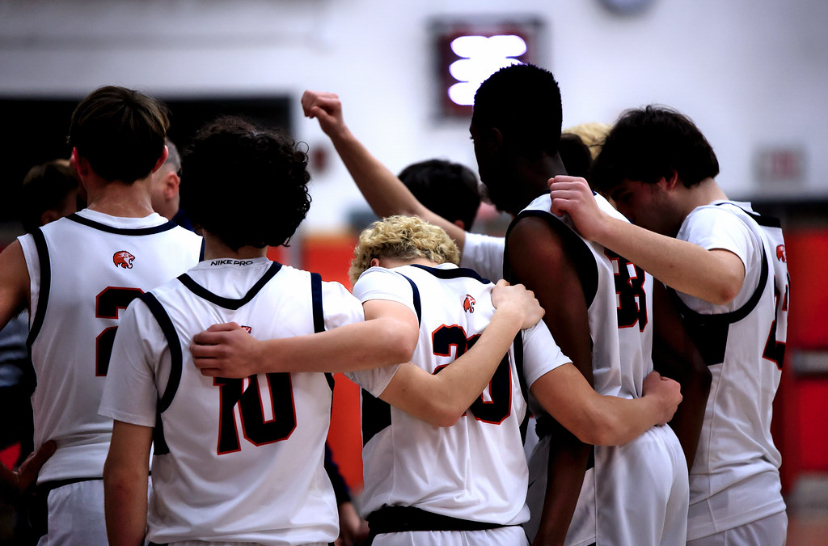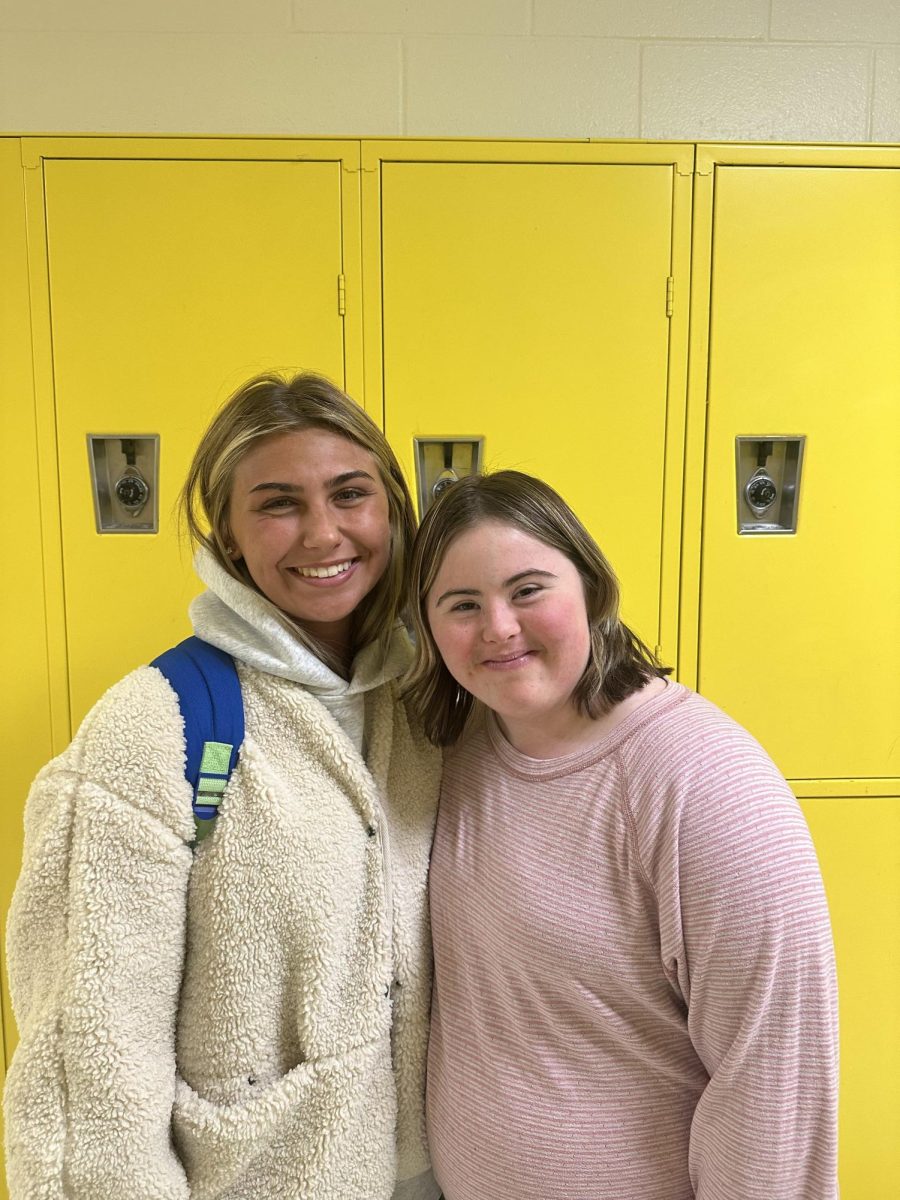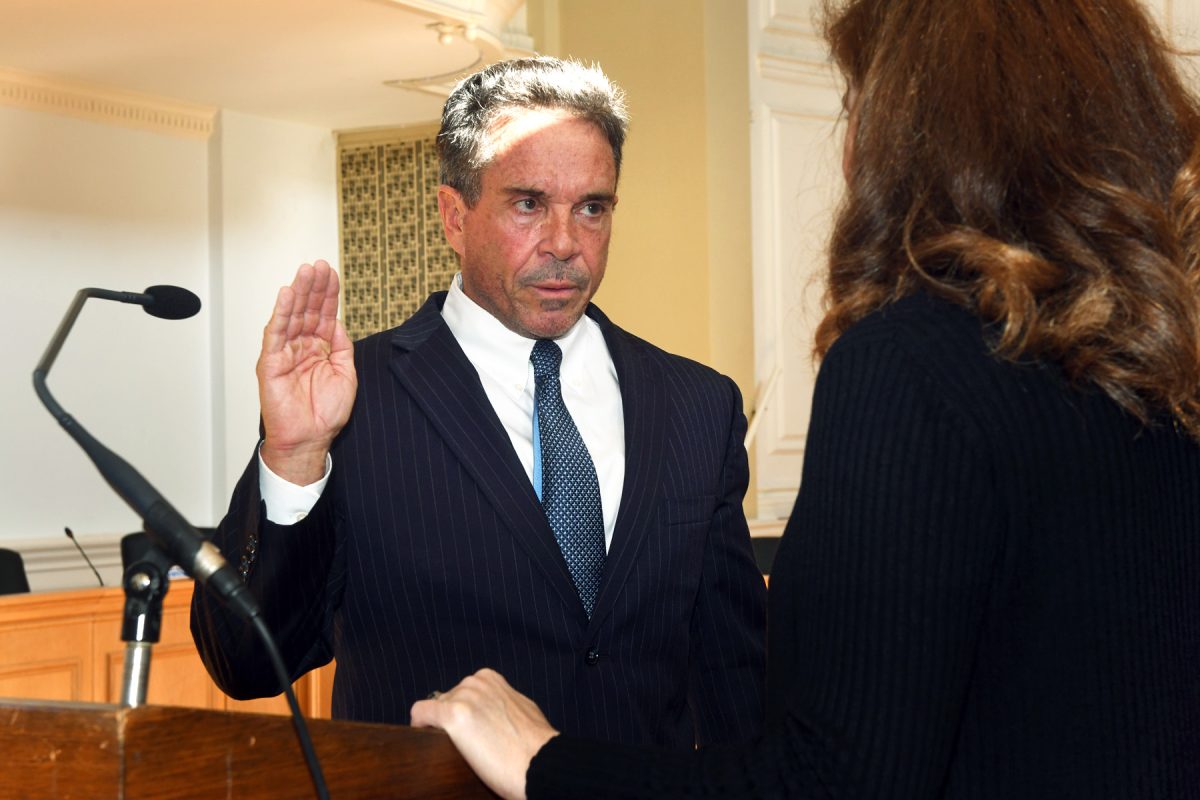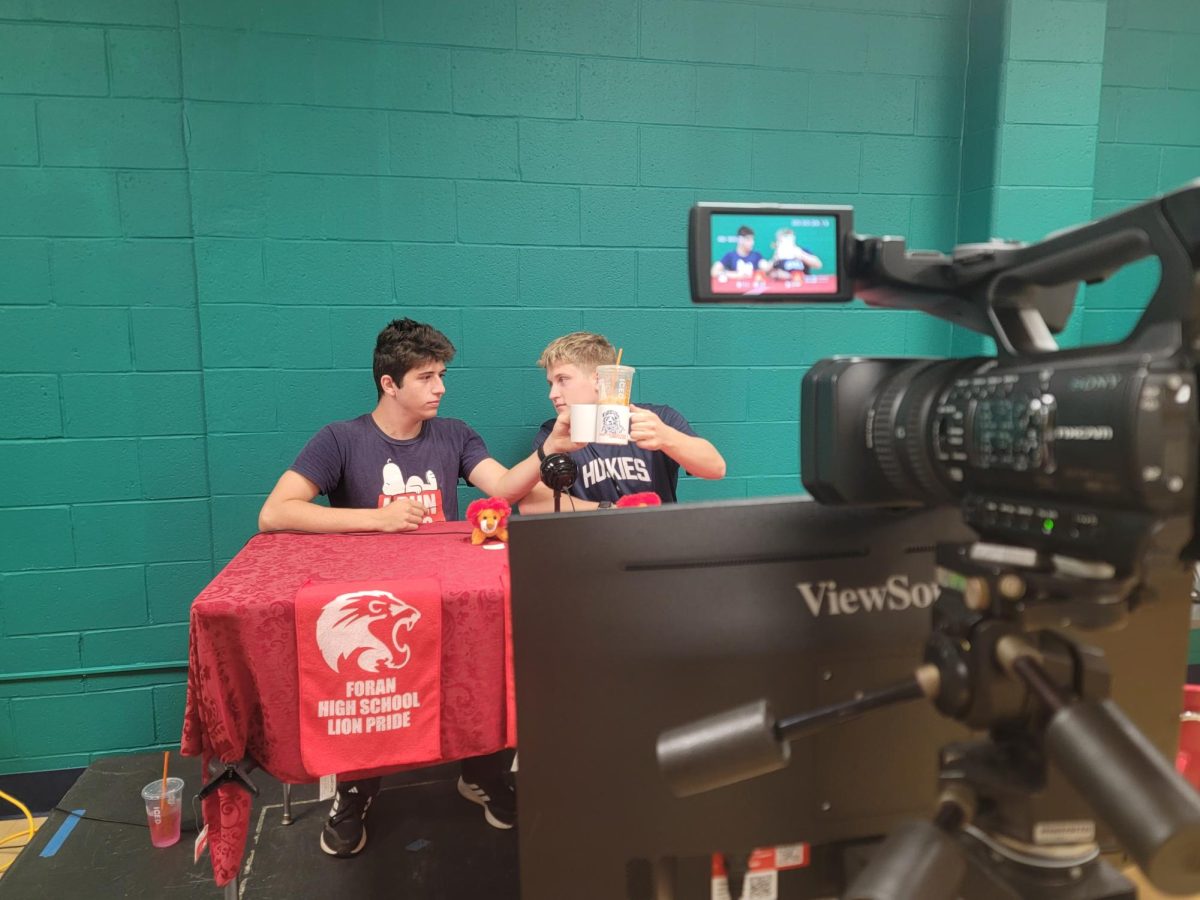Siblings in Sports
Leaving Personal Relationships Off the Field
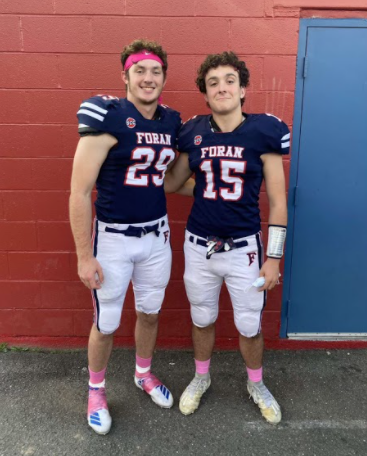
The Gaetano Brothers: David and Joe together after a game.
October 28, 2021
Being on the same team as a sibling has a unique dynamic.There is a relationship between them, whether positive or negative, that makes being on the same team an experience unlike others.
There are several families on the same Foran sports teams, including Brayden, Liam, and Riley Young on varsity boys soccer, Zoe and Izze Fallon on varsity girls soccer, and Joe and David Gaetano on varsity football.
Many times, older and younger siblings work together. There is often an expectation that the older sibling has to perform better and lead an example for their younger sibling, creating outside pressure on these athletes.
Senior athlete Brayden Young says, “Yes, there is some pressure, but oftentimes I don’t feel pressured to perform a certain way because at the end of the day, I’m already doing the best I can.”
It is important for athletes to have a positive attitude because pressure can be overwhelming and make a sport unenjoyable.
On the other hand, younger siblings have a legacy to achieve. Older siblings have more experience;,therefore, they have to catch up quickly on the routine. Despite this, many athletes find having a sibling on their team has advantages.
Riley revealed, “I have the expectation for myself that I need to push myself even harder to be better.” This is a natural response to being on varsity freshman year along with playing with two of his skilled older brothers.
Sibling competition isn’t uncommon, especially within sports, but athletes do express their appreciation and enjoyment for it. Competition helps people cooperate, free from outside pressures.
Joe says, “When I’m on the field playing on the same team as my brother, he brings out the best in my game, so there isn’t an immense amount of pressure.”
The mutual motivation between siblings can help foster a healthy sense of competition.
In David’s experience, “As the older sibling, sometimes there’s a certain pressure attached to everyday tasks. In sports, though, these pressures seem to fade when Joe and I work together to make the team better. We both acknowledge a mutual respect for each other on and off the field that allows us to work cooperatively.”
Like friendships, sibling relationships aren’t as strong when there isn’t a common interest. With these athletes, there’s no issue. Their sports have helped them bond as they experience it with family.
Zoe says, “I love playing soccer with Izze because we are so close off the field that I think it translates to the way we play together… playing together has made our bond stronger because it is something that we both find importance in.”
Izze agrees, saying, “We are close on and off the field and soccer is a sport we both grew up playing and learned to love together”.
Most athletes agreed that having their sibling on their team was convenient.
Liam says, “It helps because our schedules all line up, so it’s easy to get to places. All of our schedules are exactly the same, so we don’t have to hassle our parents.”
Similarly, Riley says,“Being on the same team as my brothers has helped my transition into highschool because I always have a ride, and I know more people on the team; plus, the coach already knows me.”
Brayden says, “I think it is an awesome experience being able to play with two of my brothers on the same team and it is something my parents love as well. It definitely makes it easier to connect… [talking] about the things we do wrong at home, and what we can do better”.
Another aspect of many sibling relationships is arguing. However, when it comes time for the game, all personal feelings need to be set aside.
Joe explains, “It’s always fine as soon as we hit the field, and it brings out the best in us”.
There can be lots of emotions, good or bad, between siblings that can be difficult to set aside.
Brayden says, “…It is tough to set aside personal feelings because I always hope that my brothers are doing better than I am because I can’t feel bad for myself. Playing different positions certainly lessens these feelings because it allows us all to be playing at the same time. It makes me less worried about how many minutes one of my brothers will play, or how they are doing in the game.”
A final aspect of siblings in sports is that being an older sibling comes with responsibilities the second a younger sibling enters the world. Older siblings are often role models for younger siblings, who tend to follow in their footsteps, and aspire to achieve what they achieve.
Izze says that Zoe has always been a role model to her. She explains that she admires Zoe’s work ethic and looks up to her.
“She’s taught me a lot in soccer not only tactically, but socially and mentally,” says Izze, “She introduced me to new friendships. She’s kept me headstrong, and I’ve done the same for her”.
Siblings by day, teammates by night. They have a bond that only they can truly understand, as it is different from that of friends. They get to watch one another grow, support one another, and learn from one another right by each other’s sides.




